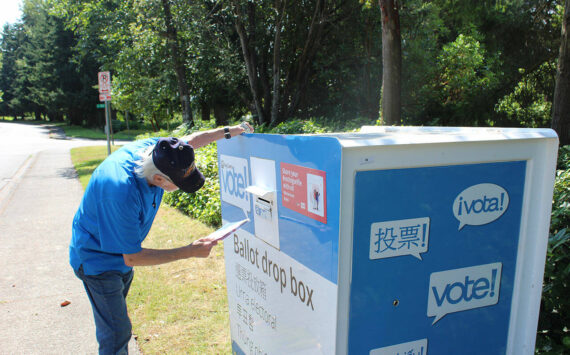“Governor Gary Locke has released a survey showing that two out of every three employers in Washington had trouble finding qualified workers in 1999. To combat the growing gap of skilled workers for Washington employers, Locke is urging the Legislature to pass his proposal that would boost the amount of on-the-job training and education for workers statewide.We have put together a number of initiatives that would expand education and training, especially for high-demand, information technology jobs, Locke said. Our state has thousands of companies and thousands of working families who would be better served if we could expand on-the-job training and education to keep these high-paying jobs here in Washington.Locke proposed three items in his supplemental budget that would address workforce development. The first would add $2.4 million to increase the capacity of the state’s colleges and universities to provide training for high-demand information technology jobs that are available now.The governor’s second proposal would use $1.2 million to invest in a Skills Gap Fund to help build partnerships between industries and the education and training systems. The proposed new system would provide on-the-job training to those who need it, Locke said, while allowing community colleges a chance to train workers to fill the needs of local industries.Locke’s third proposal would provide a business-and-occupation, or B&O tax credit of 50 percent of the cost of worker training for businesses that contract with local community colleges and private schools.Employers tell us that if they can’t find workers with the skills they need, they can’t innovate and grow, Locke said. We need to keep Washington jobs here for Washington workers.Locke unveiled the results of the survey of over 3,900 Washington employers. The survey was recently completed by the state’s Workforce Training and Education Coordinating Board. Some of the initial findings of the Workforce Board’s survey included:- Difficulty finding qualified workers: Employers in the Puget Sound region have a more difficult time finding qualified workers than firms in other parts of the state. Firms in Snohomish, King and Pierce counties, at 71, 69 and 68 percent respectively, have more problems finding qualified workers than do the nine small counties at the eastern edge of the state who reported a 53 percent rate of difficulty.The scarcity of skilled workers affects all industries, the survey shows, most particularly construction, 73 percent, and manufacturing, at 70 percent. Companies in the rapidly growing high-tech sector, including software and electronics, had only slightly less difficulty finding qualified workers, posting a 63 percent rate.- Difficulty in finding qualified workers by skill: Among those reporting difficulty, 91 percent of firms have a hard time finding skilled workers with occupation-specific skills; 90 percent have trouble finding workers with problem-solving or critical thinking skills; and 85 percent have problems finding workers with positive work habits and attitudes.- Economic consequences: Among those reporting difficulty, 74 percent of firms said the scarcity of skilled workers will lower productivity, while 67 percent said it will reduce output and sales. A total of 64 percent said scarcity would reduce the quality of their products and services.- Skill requirements, training increasing: A total of 47 percent of all employers report that skills required to adequately perform production or support jobs increased during the past three years. Seventy-six percent of high-tech firms and 56 percent of firms in the service sector reported increased skill requirements.- Some 38 percent of firms say they have increased classroom training for employees during the past three years. A total of 85 percent of employers report they provide on-the-job training.Surveys were mailed statewide to 10,739 employers during the summer and fall of 1999. Over 3,900 employers responded to the survey, a response rate of 37 percent. Results were weighted to reflect all employers statewide. The survey is conducted every two years.”
"Survey Shows Washington Firms Have Trouble Finding Qualified, Skilled Workers"
Tags: electronics, Gary Locke, Governor, high-demand information technology jobs, high-tech firms, high-tech sector, information technology, information technology jobs, King, Locke, manufacturing, Pierce, Puget, Skills Gap Fund, Snohomish, USD, Washington, Workforce Board, Workforce Training and Education Coordinating Board




